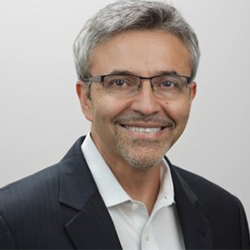Clinical Researcher—September 2019 (Volume 33, Issue 8)
SCIENCE & SOCIETY
Al O. Pacino
In an effort to maximize their voices, clinical research practitioners are taking to social media to create spaces where they can collaborate on ways to positively impact clinical research.
Many of us understand the importance healthcare and clinical research has for the well-being of communities across the globe. What industry officials sometimes overlook is the significance of professional community within the workplace.
While many decisions are made in boardrooms and at thriving industry conferences, nurses and first responders are finding their seat at the table on social media. Several patient recruitment companies have turned to social media as their central medium for doing business. Twitter, LinkedIn, and Facebook have been platforms for clinical research professionals to streamline problem discussions, solutions, and accomplishments in clinical research using #WhyWeDoResearch.
Overall, as hinted at by the examples below, use of the hashtag has been an efficient method to contribute and track meaningful insight from hundreds of nurses and first responders.
“Really positive patient story @bhamcommunity board today showing the benefits of research & explaining treatment to people more clearly. Great example of how professional (Jonathan) and patient (Perry) have to understand each other & work together to get outcomes #WhyWeDoResearch” – @cleary_susan
“Don’t forget, our Research Forum is taking place in September! Our theme this year is the power of digital. If you’d like to attend, find out more information and sign-up here: (link: http://bit.ly/crnem2019researchforum) bit.ly/crnem2019resea… #IAmResearch #WhyWeDoResearch #NHS” – @NIHRCRNMidEastMids
“#Whywedoresearch TWEETCHAT ALERT!!!!! Join @JoannLeeding & I on Wed 21st Aug 8pm BST We’ll be talking all things ‘principles’ around staff, patient & public engagement & would really value your thoughts & opinions #bepartofresearch #proudofthepaget #research #principles” – @ClaireW_UK
“Our research helped write guidelines on how to treat people with acute #bowel #bleeding in the #NHS. Just one of the reasons #WhyWeDoResearch! This blog from @stemlyns discusses the guidelines: http://www.stemlynsblog.org/jc-lower-gi-bleeding-guidance-st-emlyns/” – @BDRF1
Tag, You’re It!
The trending hashtag #WhyWeDoResearch offers a lot of value to those interested in the clinical research space. Twitter users who follow the hashtag can tune into clinical research professionals hosting their own online forums, share abstract submission opportunities, communicate in different media outlets (like podcasts) that uplift patient and nurse stories, and share breakthroughs within their own work in research. The consolidated thread of dialogue facilitates teamwork, brainstorming, and connections between patients and beneficial resources.
Building Professional Communities of the Future
We’ve all become aware of the rapidly changing environment of healthcare and clinical research. Major institutions from site management organizations to research-based nurse associations to patient advocacy groups have an opportunity to listen to perspectives of nurses and first responders by following the #WhyWeDoResearch hashtag.
Person-to-person and business-to-business networking events are currently the standard for many wanting to spur positive developments in the clinical research industry. For a variety of reasons, attendance may not always be a viable option for many professionals, but it is important to remember that smartphones with internet access have become ubiquitous. When it comes to connectivity, there is potential value to conducting clinical research focused events through an online platform and increased participation as a result. By bringing stakeholders together in a modern way, we can learn about best practices moving forward and give everyone—including patients—a chance for a better clinical experience.
Conclusion
Sharing our personal stories can have a profound impact on someone. I am a head and neck cancer survivor. My life was ultimately saved by the innovation of, and professionals in, clinical research.
We are in an era where we no longer need speculate what research professionals “might” need or “want” to make the system better—we can simply look online and join the conversation. If I am an RN in Ohio and want to know how to get involved in research or want to share my scientific discoveries, I can now be a part of a community of like-minded RNs from across the globe who can point me in the right direction.
Due to social media’s rise, breaking down silos and sharing knowledge can be integral to enhancing clinical research as we know it.
Al O. Pacino is President at BlueCloud® by HealthCarePoint Professional Collaborative Networks, based in Cedar Park, Texas, and a former member of the Editorial Advisory Board for ACRP.



